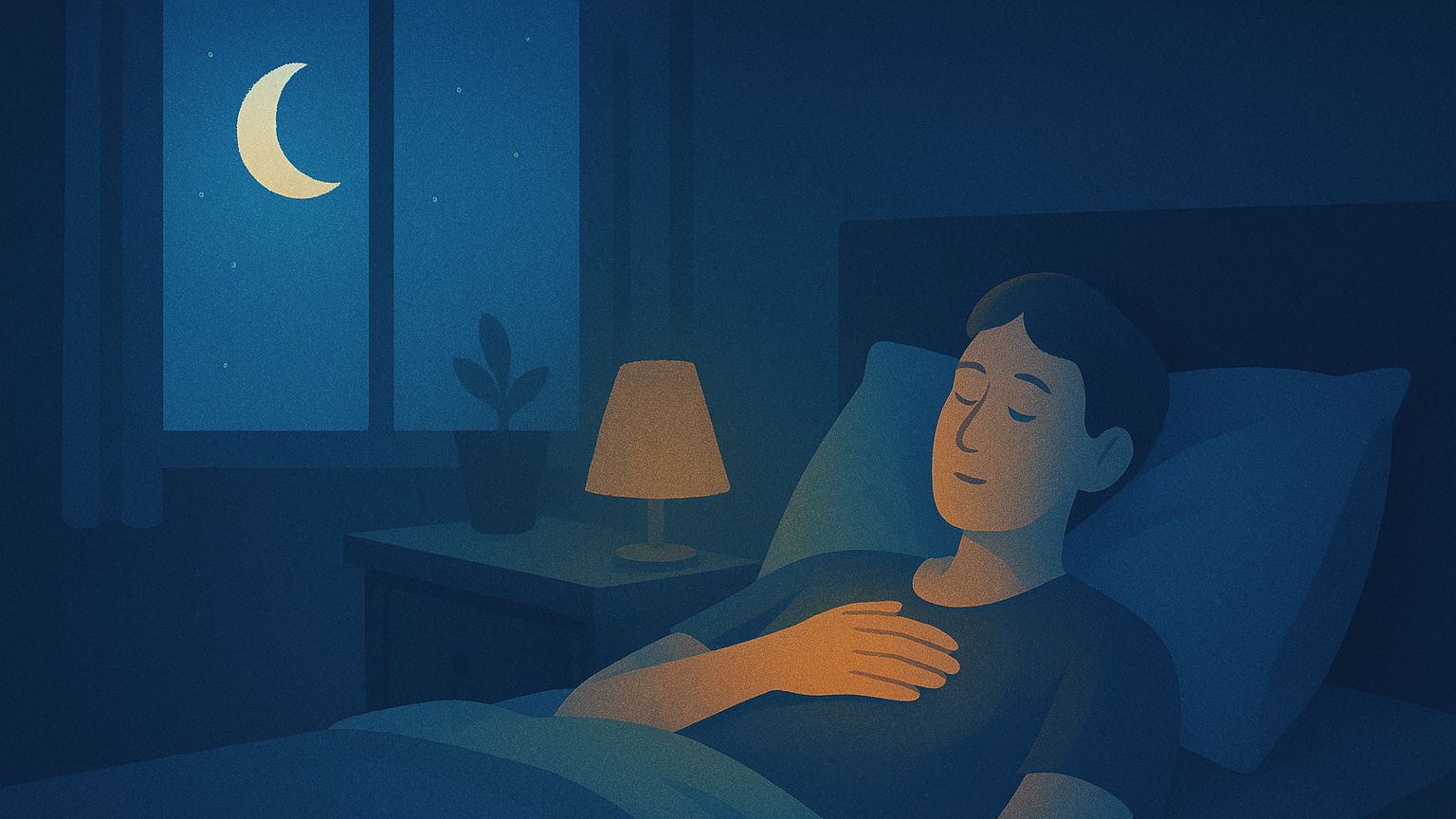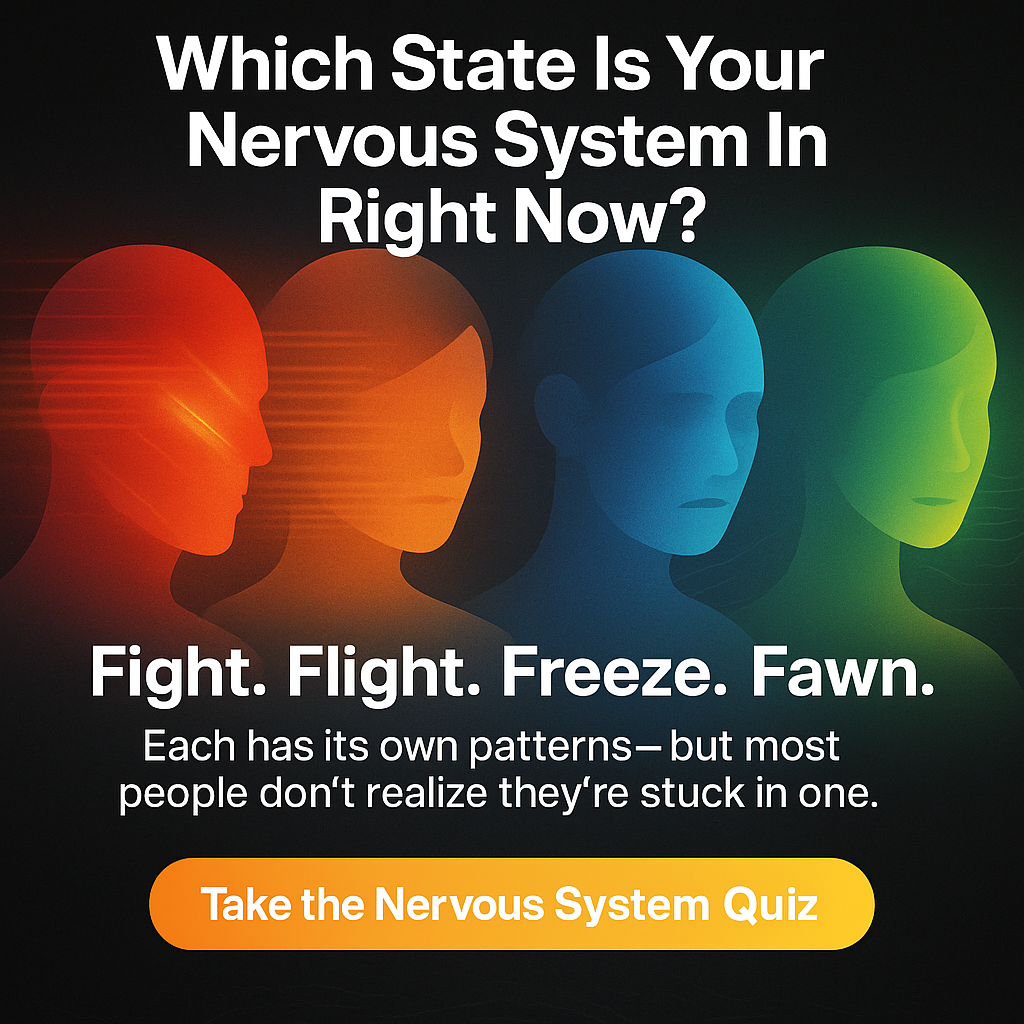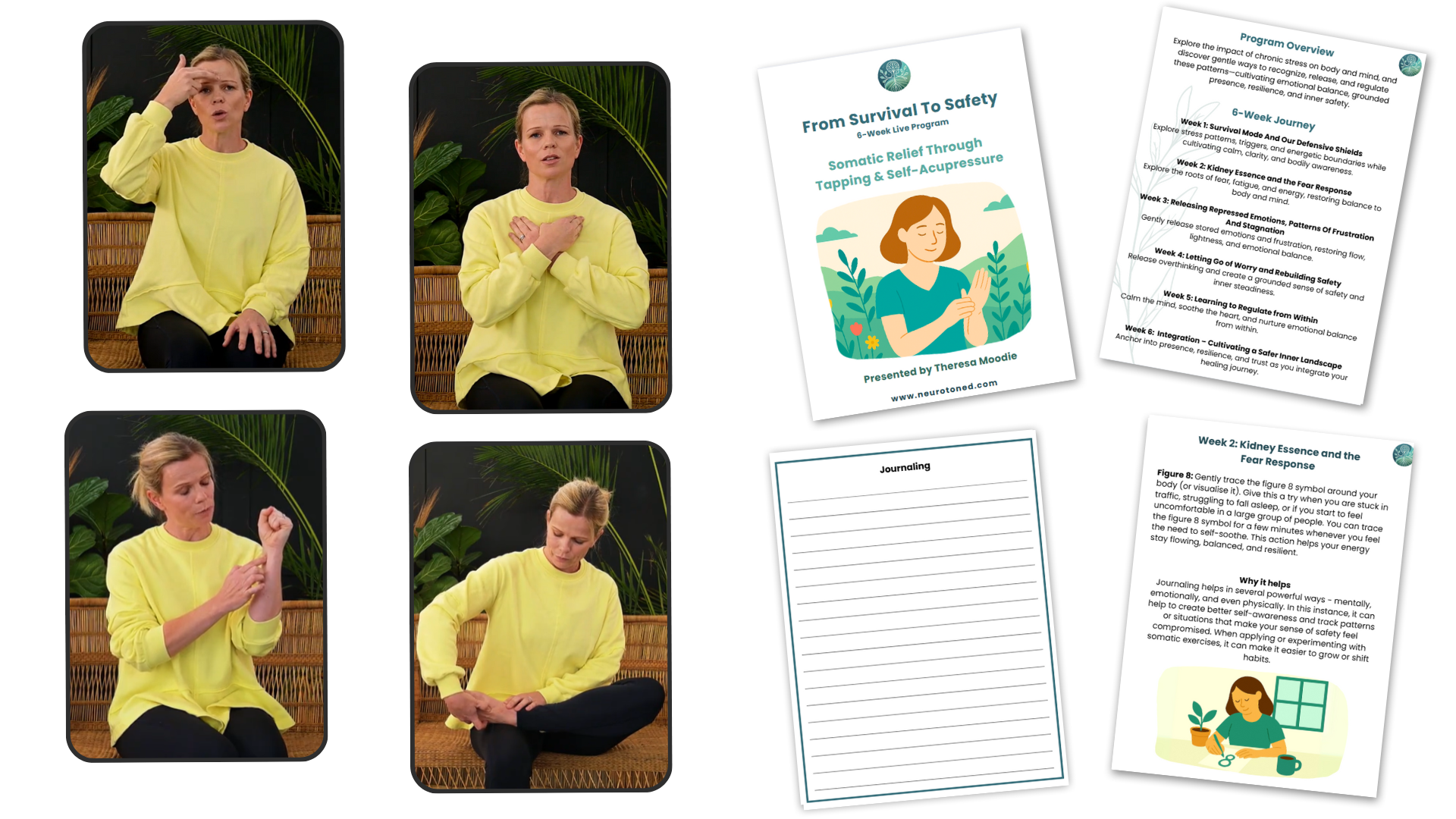
Why Heart Palpitations Feel Worse at Night, A Nervous System View
It is hard to describe the feeling of lying in bed, lights off, finally still, only to notice your heart pounding in a way it didn’t during the day. It can feel intense, wrong, or like something might happen while you sleep. If this is you, you’re not alone.
Before we go any further, here is a gentle support step you can take if your nights often feel unsettled. Many people find clarity by taking the Stress Loop Quiz.
You deserve to understand what your body is trying to say.
Quick Answer Box
Heart palpitations often feel stronger at night because your body is finally quiet enough for you to notice sensations that were masked by daytime activity. When the external world slows down, your internal world gets louder. A dysregulated nervous system may stay in a subtle “on alert” state, making your heartbeat feel more intense when you lie down. Digestive shifts, breathing changes, and the natural nighttime drop in adrenaline can also make palpitations feel more noticeable. These sensations are common, and many people find they ease with gentle grounding practices and consistent regulation support.
What Makes Heart Palpitations Feel Worse at Night
1. Your body gets quieter, so your heartbeat gets louder
During the day, noise, movement, conversations, and screens pull your attention outward. At night everything slows. The nervous system shifts from “doing” mode to “noticing” mode. This can make your heartbeat stand out more.
If you’ve ever wondered why your body feels jumpy or “too aware,” you may relate to this piece:
Why do I always feel ready to jump out of my skin?
Many people with sensitive or overloaded systems notice more internal sensations at rest.
2. Lying down changes your perception of your heartbeat
When you recline, blood redistributes through the chest area. That can make each beat feel stronger or more front-and-center. It’s not dangerous for many people, but the sensation can be surprising.
If you’ve had episodes of panic before, your brain may pair these sensations with fear. A helpful read is this one about panic patterns: What Are Panic Attacks? Why Do They Happen? Can I Stop Them?
3. Nighttime is when the nervous system tries to “reset”
The body naturally attempts to move into restorative states at night. But if your system has been running hot all day, the shift toward stillness can temporarily feel uncomfortable.
Some people describe this as a mix of wired and tired. You can learn more about how the body processes stress here: The Connection Between Psychological And Physical Pain.
4. Unprocessed stress tends to surface when distractions disappear
Thoughts you pushed aside during the day come back at bedtime. Worries, unfinished tasks, relationship stresses. The mind becomes busy and the body follows.
This is why trauma-informed care can help people understand these nighttime patterns: What is Trauma Informed Care?
5. Breathing changes when you lie down
Shallow or irregular breathing at night can amplify palpitations. When the diaphragm shifts, the heart can feel like it’s thudding harder.
6. The body is trying to downshift, but the nervous system is not ready
If you’ve been in a stress cycle for a long time, your system may struggle to drop into calm states. The transition can feel jagged. This is common and can soften with practice. This After-Work Downshift Routine for Your Nervous System may help usher your body to rest.
Small Practices to Ease Nighttime Palpitations
A simple nervous-system approach
1. Hand-to-chest and exhale lengthening, 2 minutes
A gentle script you can try:
“Feel the weight of your hand. Notice one slow inhale. Let the exhale be slightly longer without forcing.”
If this feels like too much, try placing your hand instead on the bed beside you for grounding.
2. Humming or soft sighing
This gives your vagus nerve a friendly nudge. You may find these gentle guides on humming or the physiological sigh helpful.
3. Orienting to the room
Turn your head slowly. Name 3 objects. Let your body know it is safe in this space. You can try this step-by-step guide on the orienting practice.
4. Feet-first grounding
Press your feet lightly into the bed or floor. This can settle racing sensations toward the center of the body.
A Gentle 7-Day Plan
Day 1: Notice your heartbeat once during the day. Give your body a friendly “I see you.”
Day 2: Two minutes of longer exhale breathing before bed.
Day 3: Humming for 30 seconds when lying down.
Day 4: Place a warm compress on your sternum for 5 minutes.
Day 5: Spend one minute orienting around your room before turning off the lights.
Day 6: Add a grounding object beside the bed like a smooth stone or pillow to hold.
Day 7: Revisit your progress kindly. Even tiny shifts count.
Common Sticking Points
“I try breathing, but it makes my palpitations worse.”
This happens when breathing feels like pressure. Try focusing on your feet or your pillow instead. You may want to read Why Deep Breathing Makes Me More Anxious, And What To Do Instead to know more.
“The moment I lie down, everything speeds up.”
Your system may still be in “day mode.” Give it 3 to 5 minutes of gentle transitions like dimming lights and slowing your movements.
“I wake up at 3 AM with my heart racing.”
This is often tied to adrenaline dips and rises. It does not mean danger for many people. A slow hum or noticing your surroundings may help.
“I feel like I’m missing something medical.”
If anything feels unusual for you, a medical check-in is always wise. Many people find reassurance in getting clear information.
FAQs
Why do palpitations feel more intense at night?
Because stillness makes internal sensations louder, and the nervous system is shifting into rest.
Can stress make nighttime palpitations worse?
Yes. The nervous system stays more activated when stress piles up, making sensations stronger at rest.
Is it normal to notice my heartbeat when lying on my side?
Many people do. Blood flow shifts can make each beat feel amplified.
What helps calm nighttime palpitations?
Longer exhales, grounding, orientation, gentle humming, and slowing down the transition into bed.
Should I get checked by a doctor?
If something feels off, sudden, or unusual for your body, consider speaking with a qualified medical professional.
Can a dysregulated nervous system cause palpitations?
It can contribute to heightened awareness of your heartbeat and stress responses that intensify sensations.
More Gentle Reads
If tonight feels heavy, these may help:
- How to Sleep After Trauma: Calming Night Practices That Help
- Screen-Free Evening Routine to Soothe Your Nervous System
- How To Calm Racing Thoughts At Night (Nervous System Tools That Help)
Disclaimer: This article is educational and not medical advice. If you have health concerns, consider speaking with a qualified professional.
Discover Your Vagal Tone
Find out how dysregulated your nervous system is and get your personalized roadmap to feeling calm, energized, and in control


